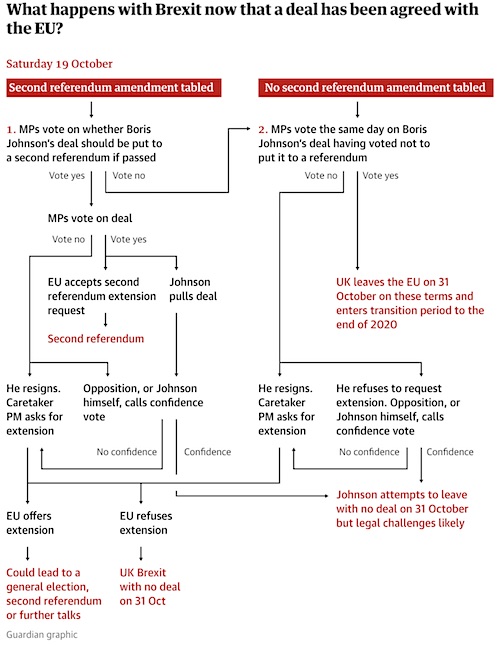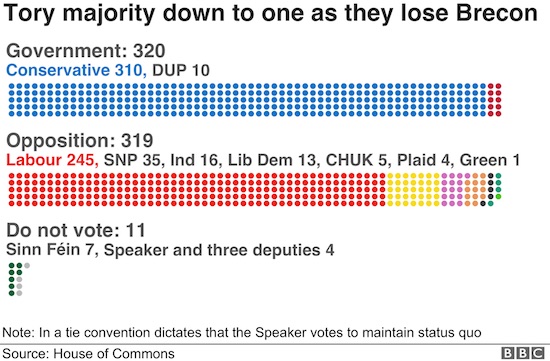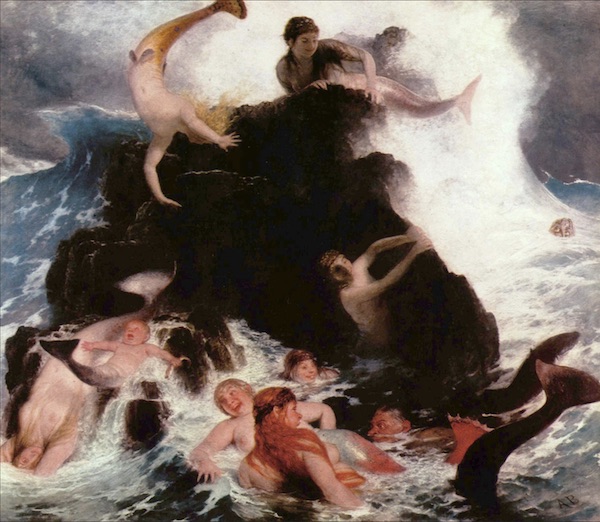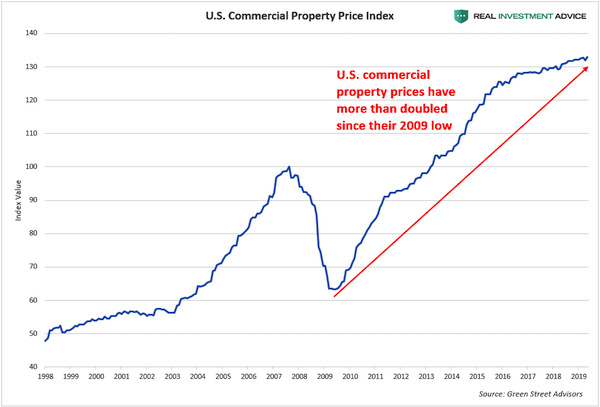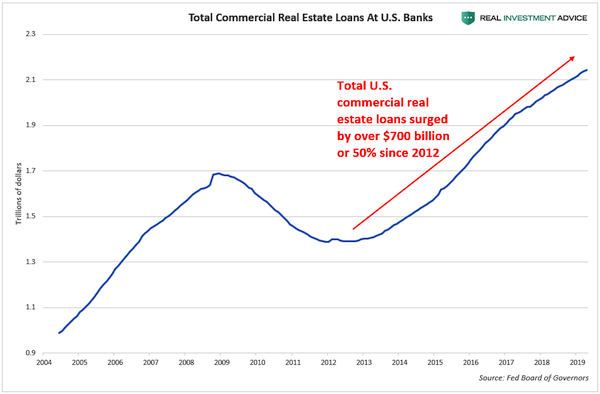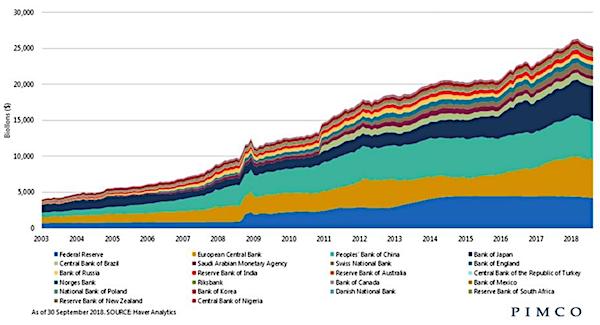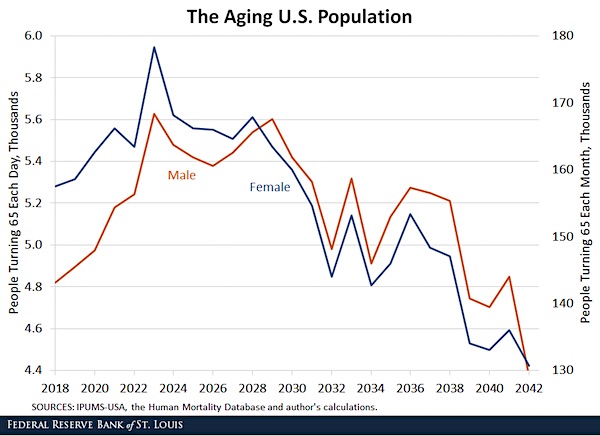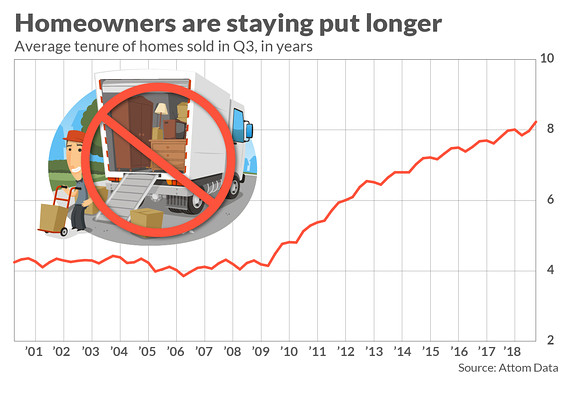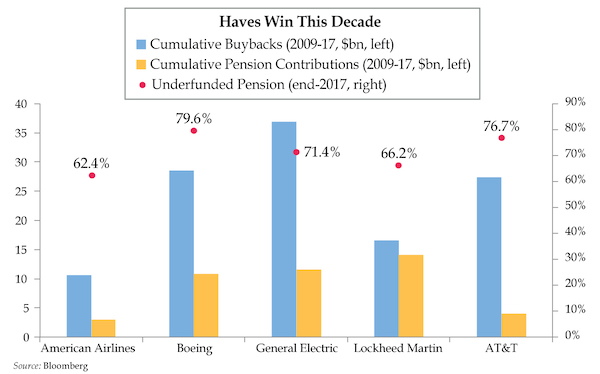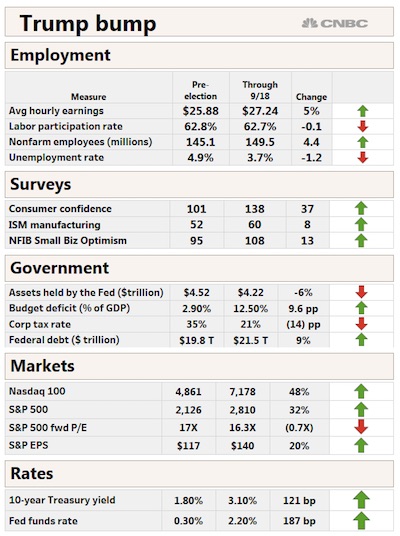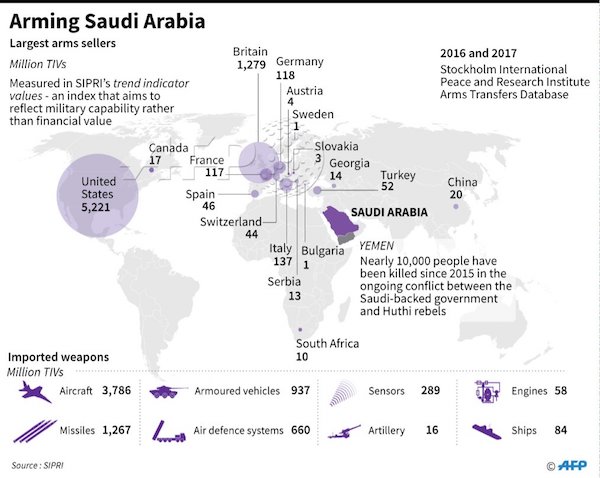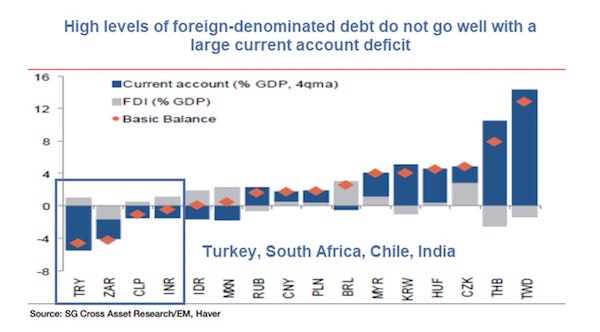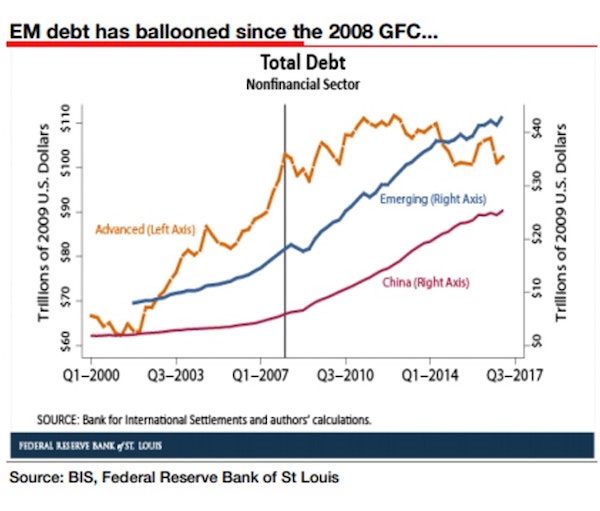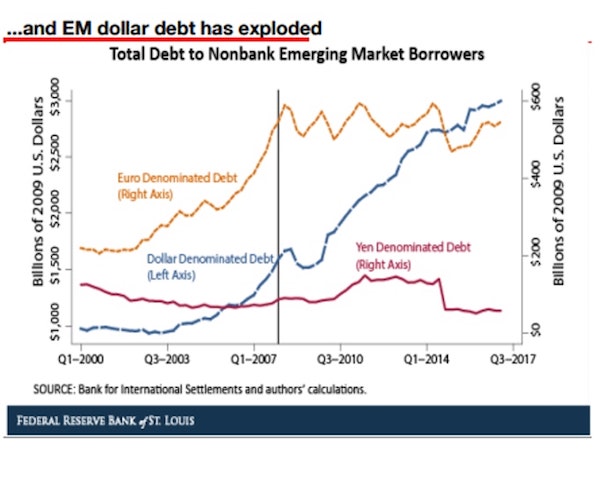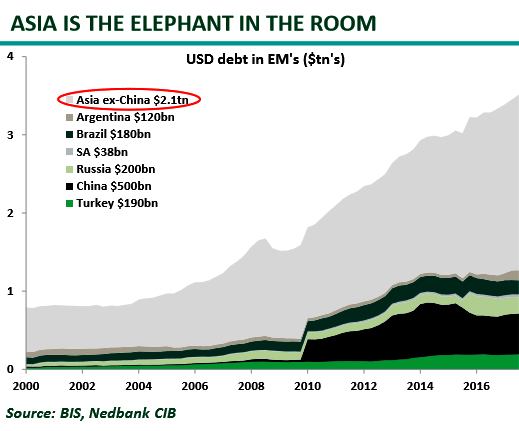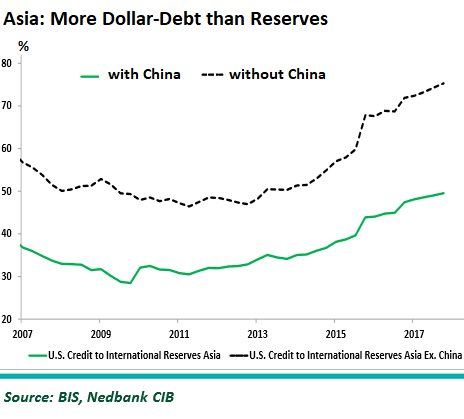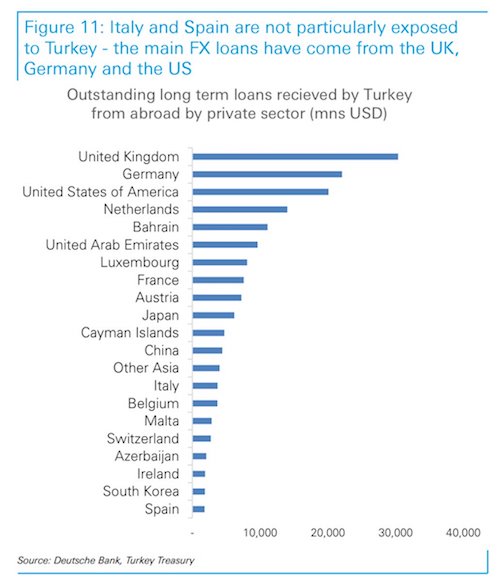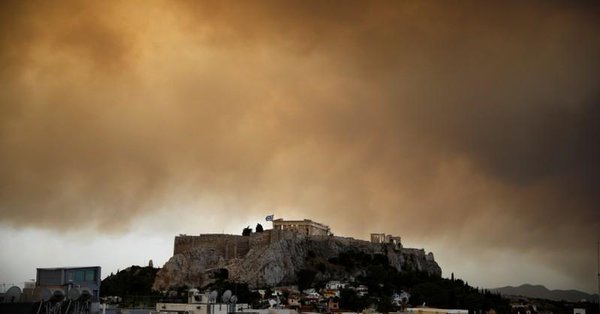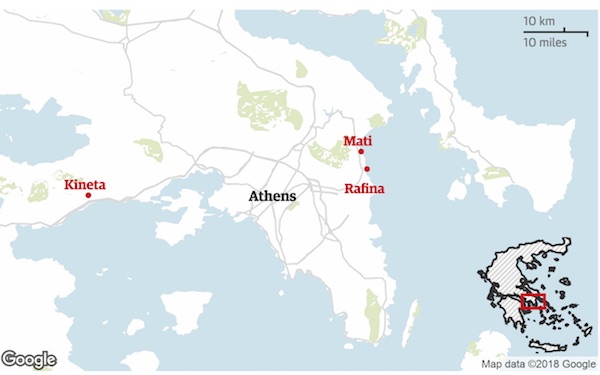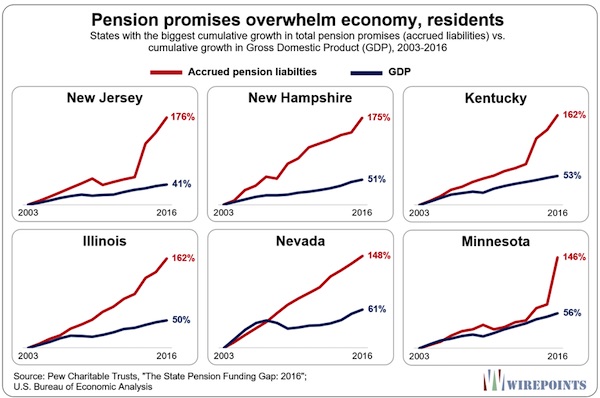
Pablo Picasso Standing nude 1928

“Imagine Tony Blair dragged from his multi-million pound Georgian home in Connaught Square, London, in handcuffs [..] Blair’s “paramount crime” is the deaths of a million Iraqis.”
• The Assange Arrest Is a Warning From History (John Pilger)
The glimpse of Julian Assange being dragged from the Ecuadorean embassy in London is an emblem of the times. Might against right. Muscle against the law. Indecency against courage. Six policemen manhandled a sick journalist, his eyes wincing against his first natural light in almost seven years. That this outrage happened in the heart of London, in the land of Magna Carta, ought to shame and anger all who fear for “democratic” societies. Assange is a political refugee protected by international law, the recipient of asylum under a strict covenant to which Britain is a signatory. The United Nations made this clear in the legal ruling of its Working Party on Arbitrary Detention.
But to hell with that. Let the thugs go in. Directed by the quasi fascists in Trump’s Washington, in league with Ecuador’s Lenin Moreno, a Latin American Judas and liar seeking to disguise his rancid regime, the British elite abandoned its last imperial myth: that of fairness and justice. Imagine Tony Blair dragged from his multi-million pound Georgian home in Connaught Square, London, in handcuffs, for onward dispatch to the dock in The Hague. By the standard of Nuremberg, Blair’s “paramount crime” is the deaths of a million Iraqis. Assange’s crime is journalism: holding the rapacious to account, exposing their lies and empowering people all over the world with truth.
The shocking arrest of Assange carries a warning for all who, as Oscar Wilde wrote, “sew the seeds of discontent [without which] there would be no advance towards civilisation”. The warning is explicit towards journalists. What happened to the founder and editor of WikiLeaks can happen to you on a newspaper, you in a TV studio, you on radio, you running a podcast. Assange’s principal media tormentor, the Guardian, a collaborator with the secret state, displayed its nervousness this week with an editorial that scaled new weasel heights. The Guardian has exploited the work of Assange and WikiLeaks in what its previous editor called “the greatest scoop of the last 30 years”. The paper creamed off WikiLeaks’ revelations and claimed the accolades and riches that came with them.
With not a penny going to Julian Assange or to WikiLeaks, a hyped Guardian book led to a lucrative Hollywood movie. The book’s authors, Luke Harding and David Leigh, turned on their source, abused him and disclosed the secret password Assange had given the paper in confidence, which was designed to protect a digital file containing leaked US embassy cables. With Assange now trapped in the Ecuadorean embassy, Harding joined the police outside and gloated on his blog that “Scotland Yard may get the last laugh”. The Guardian has since published a series of falsehoods about Assange, not least a discredited claim that a group of Russians and Trump’s man, Paul Manafort, had visited Assange in the embassy. The meetings never happened; it was fake.
Read more …

We just get more. But it’s what NOT being said that reveals more.
• The 7 Years Of Lies About Assange Won’t Stop Now (Cook)
For seven years, from the moment Julian Assange first sought refuge in the Ecuadorean embassy in London, they have been telling us we were wrong, that we were paranoid conspiracy theorists. We were told there was no real threat of Assange’s extradition to the United States, that it was all in our fevered imaginations. For seven years, we have had to listen to a chorus of journalists, politicians and “experts” telling us that Assange was nothing more than a fugitive from justice, and that the British and Swedish legal systems could be relied on to handle his case in full accordance with the law. Barely a “mainstream” voice was raised in his defence in all that time.
From the moment he sought asylum, Assange was cast as an outlaw. His work as the founder of Wikileaks – a digital platform that for the first time in history gave ordinary people a glimpse into the darkest recesses of the most secure vaults in the deepest of Deep States – was erased from the record. Assange was reduced from one of the few towering figures of our time – a man who will have a central place in history books, if we as a species live long enough to write those books – to nothing more than a sex pest, and a scruffy bail-skipper. The political and media class crafted a narrative of half-truths about the sex charges Assange was under investigation for in Sweden.
They overlooked the fact that Assange had been allowed to leave Sweden by the original investigator, who dropped the inquiry, only for it to be revived by another investigator with a well-documented political agenda. They failed to mention that Assange was always willing to be questioned by Swedish prosecutors in London, as had occurred in dozens of other cases involving extradition proceedings to Sweden. It was almost as if Swedish officials did not want to test the evidence they claimed to have in their possession. [..] It was a freedom of information request by an ally of Assange, not a media outlet, that unearthed documents showing that Swedish investigators had, in fact, wanted to drop the case against Assange back in 2013. The UK, however, insisted that they carry on with the charade so that Assange could remain locked up. A British official emailed the Swedes: “Don’t you dare get cold feet!!!”
Read more …

There’s some confusion here. Some say because Sweden dropped charges, the US is now first in line. Others deny this.
• UK MPs Want Assange Extradited To Sweden (G.)
Political pressure is mounting on Sajid Javid to prioritise action that would allow Julian Assange to be extradited to Sweden, amid concerns that US charges relating to Wikileaks’ activities risked overshadowing longstanding allegations of rape. More than 70 MPs and peers have written to Javid and the shadow home secretary, Diane Abbott, urging them to focus attention on the earlier Swedish investigations that Assange would face should the case be resumed at the alleged victim’s request.
In a letter coordinated by Labour’s Stella Creasy and Jess Phillips and seen by the Guardian, the MPs declare: “We do not presume guilt, of course, but we believe due process should be followed and the [Swedish] complainant should see justice be done.” They call on Javid and Abbott to “champion action” to ensure that extradition is a possibility should Swedish authorities choose to pursue it. Assange first entered the Ecuadorian embassy in 2012 in order to avoid extradition to Sweden over sexual assault allegations, which he has always denied. While the statute of limitations on one of the allegations has expired, the other will not be reached until August 2020.
Read more …

May did it before in 2012, but I understand laws have changed since. Labour better make sure that block counts.
• Labour Urges PM To Block Julian Assange Extradition To US (G.)
The shadow home secretary, Diane Abbott, has urged Theresa May to block the extradition of Julian Assange to the US in the same way she intervened in the case of the computer hacker Gary McKinnon. In 2012, as home secretary, May halted McKinnon’s extradition on human rights grounds after doctors warned he was at risk of suicide if sent to face trial in the US. Abbott said similar grounds should be used to block Assange’s extradition. On Thursday, the Wikileaks founder was arrested on behalf of the US authorities, who have charged him with involvement in a computer hacking conspiracy.
The 47-year-old faces up to 12 months in a British prison after he was found guilty of breaching his bail conditions. The US charge could attract a maximum jail sentence of five years, according to the US Department of Justice. Speaking on BBC Radio 4’s Today programme on Friday, Abbott said: “If you remember the Gary McKinnon case, the Americans insisted on extraditing him. He had done this massive computer hack, but his real crime was to have embarrassed the American military and security service. “In the end the then home secretary, Theresa May, blocked his extradition on what she said were human rights grounds. We think there may be human rights grounds in relation to Assange.”
Abbott described the allegations facing Assange from two women in Sweden as “serious”, but said charges were never brought. She said: “If the Swedish government wants to come forward with those charges I believe that Assange should face the criminal justice system.” But she added: “It is not the rape charges, serious as they are, it is about WikiLeaks and all of that embarrassing information about the activities of the American military and security services that was made public. “He is at the very least a whistleblower and much of the information that he brought into the public domain, it could be argued, was very much in the public interest.”
[..] “It is this whistleblowing into illegal wars, mass murder, murder of civilians and corruption on a grand scale, that has put Julian Assange in the crosshairs of the US administration. “It is for this reason that they have once more issued an extradition warrant against Mr Assange.” In response, the home secretary, Sajid Javid, said: “Why is it whenever someone has a track record of undermining the UK and our allies and the values we stand for, you can almost guarantee that the leadership of the party opposite will support those who intend to do us harm? You can always guarantee that from the party opposite.”
Read more …

“The point of journalism is to expose horrific crimes like this so that the powerful people who order them pay legal consequences, not the ones who expose them.”
• Assange’s ‘Conspiracy’ to Expose War Crimes Has Already Been Punished (Fair)
In 2010, the Guardian, like the New York Times and a few other corporate newspapers, briefly partnered with WikiLeaks to publish the contents of thousands of confidential US diplomatic cables, known as Cablegate. That year, WikiLeaks released other confidential US government information as well: the Afghanistan War Logs, the Iraq War Logs, the infamous “Collateral Murder” video. The material exposed atrocities perpetrated by the US military, as well as other disgraceful acts—like US diplomats strategizing on how to undermine elected governments out of favor with Washington, spying on official US allies and bullying poor countries into paying wildly exorbitant prices for life-saving drugs.
One US soldier involved in the “collateral murder” airstrike that Manning and Assange exposed, Ethan McCord, was threatened and reprimanded by a superior officer for requesting psychiatric help after the atrocity. (“Get the sand out of your vagina,” he was reportedly told.) McCord had tended to wounded children during the massacre. He was soon expelled from the military, apparently now “unsuited” for it. The point of journalism is to expose horrific crimes like this so that the powerful people who order them pay legal consequences, not the ones who expose them. Presumably that is why “press freedom” is considered important, and why it’s guaranteed by the First Amendment.
The law should have protected Manning from punishment, the same way it protects somebody who uses violence in justifiable self-defense or in defense of others. In Manning’s case, that was especially true, because she exposed grave crimes while stationed in Iraq, as the US perpetrated an even higher-level crime—a war of aggression based on a fraudulent pretext. If the law should have protected Manning, who was at the very heart of the “conspiracy” to expose gruesome crimes, then it obviously should protect Assange, and any of the outlets that worked with him.
Read more …

“I’d like to see The New York Times’s front page headline on that story: Russian Colluder Wins Nobel Prize, Put on Trial in Federal Court.”
• Cascading Cat Litter (Jim Kunstler)
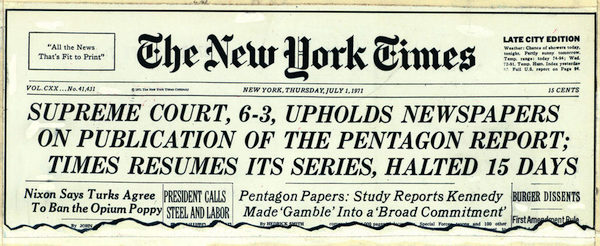
And so now Julian Assange of Wikileaks has been dragged out of his sanctuary in the London embassy of Ecuador for failing to clean his cat’s litter box. Have you ever cleaned a litter box? The way we always did it was to spread some newspaper — say, The New York Times — on the floor, transfer the used cat litter onto it, wrap it into a compact package, and put it in the trash. It was interesting to scan the Comments section of The Times’s stories about the Assange arrest: Times readers uniformly presented themselves as a lynch mob out for Mr. Assange’s blood. So much for the spirit of liberalism and The Old Gray Lady who had published The Pentagon Papers purloined by Daniel Ellsberg lo so many years ago.
Reading between the lines in that once-venerable newspaper — by which I mean gleaning their slant on the news — one surmises that The Times has actually come out against freedom of the press, a curious attitude, but consistent with the neo-Jacobin zeitgeist in “blue” America these days. Anyway, how could anyone expect Mr. Assange to clean his cat’s litter box when he was unable to go outside his sanctuary to buy a fresh bag of litter, and was denied newspapers this past year, as well as any other contact with the outside world? US government prosecutors had better tread lightly in bringing Mr. Assange to the sort of justice demanded by readers of The New York Times — which is to say: lock him up in some SuperMax solitary hellhole and throw away the key. The show trial of Julian Assange on US soil, when it comes to pass, may end up being the straw that stirs America’s Mickey Finn as a legitimate republic.
The bloodthirsty hysteria among New York Times readers is a symptom of the mass confusion sown by agencies of the US government itself when its own agents ventured to meddle in the national election of 2016 and then blame it on “the Russians.” As you will learn in the months ahead, it was The Times itself, and other corporate news organizations, who colluded with officers of the FBI, the Department of Justice, the CIA, and the Obama White House to concoct a phony narrative about Mr. Trump being in cahoots with Vladimir Putin, thus depriving Hillary Clinton of her “turn” in the White House; and then to join those agencies, and the grotesquely dishonest two-year investigation of Special Counsel Robert Mueller, in a cover-your-ass operation to hide their nefarious and criminal acts.
In the meantime, Mr. Assange may receive a Nobel Prize as a symbol of a lone conscience standing up against the despotic deceits of the world’s deep states. Wouldn’t that gum up the works nicely? I’d like to see The New York Times’s front page headline on that story: Russian Colluder Wins Nobel Prize, Put on Trial in Federal Court. By then, the United States of America will be so completely gaslighted that it will pulsate in the darkness like a death star about to explode.
Read more …

Michael Malice on Twitter: “Let’s be clear: Julian Assange is not a journalist.
He uncovered and released information that the political establishment and government wanted to stay hidden.
Does that sound like the work of a journalist?”
• Is Julian Assange Another Pentagon Papers case? (Alan Dershowitz)
Before WikiLeaks founder Julian Assange gained asylum in the Ecuadorian embassy in London in 2012, he and his British legal team asked me to fly to London to provide legal advice about United States law relating to espionage and press freedom. I cannot disclose what advice I gave them, but I can say that I believed then, and still believe now, that there is no constitutional difference between WikiLeaks and the New York Times. If the New York Times, in 1971, could lawfully publish the Pentagon Papers knowing they included classified documents stolen by Rand Corporation military analyst Daniel Ellsberg from our federal government, then indeed WikiLeaks was entitled, under the First Amendment, to publish classified material that Assange knew was stolen by former United States Army intelligence analyst Chelsea Manning from our federal government.
So if prosecutors were to charge Assange with espionage or any other crime for merely publishing the Manning material, this would be another Pentagon Papers case with the same likely outcome. Many people have misunderstood the actual Supreme Court ruling in 1971. It did not say that the newspapers planning to publish the Pentagon Papers could not be prosecuted if they published classified material. It only said that they could not be restrained, or stopped in advance, from publishing them. Well, they did publish, and they were not prosecuted.
[..] the problem with the current effort is that, while it might be legally strong, it seems on the face of the indictment to be factually weak. It alleges that “Assange encouraged Manning to provide information and records” from federal government agencies, that “Manning provided Assange with part of a password,” and that “Assange requested more information.” It goes on to say that Assange was “trying to crack the password” but had “no luck so far.” Not the strongest set of facts here!
Read more …

Nice going, Zuck.
• Facebook Removes Page of Rafael Correa on Same Day as Assange’s Arrest (MU)
Facebook has unpublished the page of Ecuador’s former president, Rafael Correa, the social media giant confirmed on Thursday, claiming that the popular leftist leader violated the company’s security policies.[..] In March, WikiLeaks published a tranche of documents dubbed the INA Papers linking President Lenin Moreno to the INA Investment Corporation, an offshore shell company used by Moreno to procure furniture, property, and various luxury items. The account number for the offshore account allegedly used by the president to launder money was shared across Ecuadorean social networks by netizens of all political stripes, including by Correa – who had about 1.5 million followers and whose Facebook page enjoyed more interactions and attention than that of President Moreno himself.
[..] The removal of Correa’s page for violating Facebook’s “community standards” is an unprecedented move, and the former statesman is the most high-profile public political figure to ever be removed from the social platform–placing the economist and icon of Latin American “socialism of the 21st century” in the same unlikely category as right-wing conspiracy theorist and broadcaster Alex Jones.
Read more …

What would that solve?
• Second Brexit Referendum Vote ‘Very Likely’ – Philip Hammond (Ind.)
A second referendum on Brexit is “very likely” to be put before parliament, Philip Hammond has said. Speaking in Washington on Friday, the chancellor said a fresh public vote was a “proposition that could and, on all the evidence, is very likely to be put to parliament at some stage”. However, he also said about six months would be needed to hold a referendum, and that there would not be enough time before Britain is due to leave the EU on the new deadline of 31 October. Mr Hammond also stressed that the government was still opposed to a second referendum, although he said other Labour demands – such as a customs union with the EU – were up for debate.
“The government’s position has not changed,” he said. “The government is opposed to a confirmatory referendum and therefore we would not be supporting it.” The idea of a new referendum was among several Brexit alternatives to Theresa May’s deal that were put to lawmakers in the last month – but which all fell short of a majority in parliament. The prime minister has so far failed to get her own party behind the Brexit divorce deal she agreed with other European Union leaders last year. She was forced to ask the bloc for a delay and to start talks with Labour about how to break the impasse in parliament.
Read more …

It says a lot about the human attention span that this doesn’t receive a lot more scrutiny.
This is where Fed policies will be found to have hurt people most.
• What Went Wrong With Pensions And Why The Whole World Must Be Worried (Rubino)
As baby boomer teachers, police and firefighters retire, the required pension payouts are soaring. Combine this with inadequate contributions, and the liabilities of major U.S. public pensions are up 64% since 2007 while assets are up only 30%. This math is simple enough for even a politician or fund trustee to grasp, but because there’s no immediate penalty for underfunding a pension system, it has become normal practice in a long list of places. Another, related problem is also mathematical, but it’s harder to manage in a boom-and-bust world: When pension plans suffer a big loss, as they tend to do in bear markets, the next few years’ returns have to go towards making up that loss before plan assets can start growing again. The following chart, from a recent Wall Street Journal article, shows pension fund assets falling behind in the past two bear markets and having increasing trouble catching up with steadily-growing liabilities.
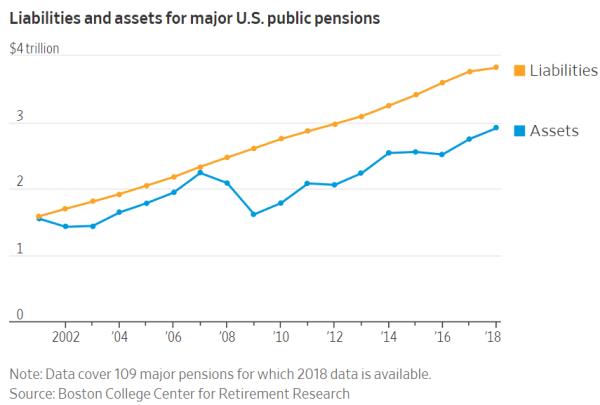
In some cases this puts funds permanently behind the curve and can only be fixed with massive infusions of taxpayer cash or draconian benefit cuts, neither of which are feasible in a system that punishes hard choices. The next chart shows how much more the worst offenders would have to contribute to their plans to get by with honest future return assumptions. For Illinois, Kentucky and New Jersey this will never happen.
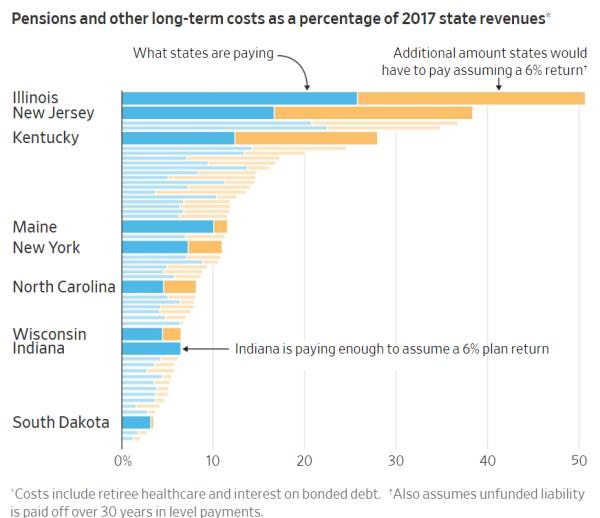
What does all this mean? A few things: In the next bear market the pension funds that are already wildly underfunded will fall into a financial black hole from which they’ll never be able to escape. Those states and cities – many of which are issuing bonds to cover their day-to-day expenses – will be exposed as junk credits (as Chicago was recently) and will have to either pay way up to borrow or enact some combination of tax increases (politically almost impossible) or pension benefit cuts (legally impossible in many places) which will cause chaos without fixing the underlying problem. The weakest cities and the states in which they reside will be forced to default on some of their obligations, stiffing suppliers, creditors, and/or employees.
This will throw the municipal bond market into chaos as investors, worried that the next Chicago is lurking in their portfolios, dump the whole muni sector. Faced with a cascade failure of a crucial part of the fixed income universe, the federal government will react the way it did when the mortgage market imploded in 2008, with a massive taxpayer funded bailout. At which point there’s a good chance of the crisis spreading from pensions to currencies, as the world finally realizes that the bailouts are just beginning, with US states and cities soon to be followed by student loans, emerging markets, and European failed states.
Read more …

Drip. Drip.
• Italy’s Fiscal Health Is Once Again In Serious Decline (DQ)
On Wednesday, Italy’s coalition government slashed its growth forecast for the Italian economy in 2019 to 0.2% – the weakest forecast in the Eurozone – from a previous forecast of 1%. Italy is already in a technical recession after chalking up two straight quarters of negative GDP growth in the second half of 2018. The government’s budget for this year was based on the assumption that the economy would expand by 1% this year. Now, it seems the economy may not grow at all; it could even shrink. One direct result of this is that Italy’s current account deficit for 2019 will be substantially higher than the 2.04% of GDP Italy’s government pledged to stick to late last year. And that can mean only thing: another standoff between Rome and Brussels over the direction of fiscal policy is in the offing.
Italy already boasts the largest public debt pile in Europe in nominal terms, clocking in at €2.14 trillion, as well as the second largest in relative terms after Greece’s twice bailed out economy. Rome just forecast that public debt would hit a new record high of 132.6% of GDP this year. That record is unlikely to last very long given Italy’s stagnating economy and the government’s determination to cut taxes, reduce the retirement age and introduce a citizens’ basic income.
The biggest problem with Italy’s economy is that many of its problems are chronic and deep seated. Many of them date back to the adoption of the euro, in 2000, or in the case of Rome’s massive addiction to public debt, to the 1980s. As the OECD points out, real GDP in Italy is still well below its pre-crisis peak. Italy is also the only OECD country where incomes (as measured by GDP per capita) are no higher than in 2000. By contrast, in France, Spain, the UK and Germany they have risen during the same period by 13%, 17%, 21% and 23 respectively.
Read more …

Now imagine this WITHOUT interest rates at record lows. What was once a market has now turned into a slot machine.
• Uber Discloses 3-Yr $10-Billion Loss from Operations (WS)
Uber Technologies’ IPO filing was made public today. The 330-page or so S-1 filing disclosed all kinds of goodies, including detailed but still unaudited pro-forma financial statements as of December 31, 2018, huge losses from operations, big tax benefits, large gains from the sale of some operations, stagnating rideshare revenues, and an enormous list of chilling “Risk Factors” that go beyond the usual CYA. The filing, however, didn’t disclose the share price, the IPO valuation, and how much money the IPO will raise for Uber. On Tuesday, “people familiar with the matter” had told Reuters that Uber plans to raise $10 billion in the IPO. Most of the IPO shares would be sold by the company to raise funds, and a smaller amount would be sold by investors cashing out, the sources said.
The filing did not confirm this and instead left blanks or used placeholder amounts. But if true, $10 billion in shares sold would make this IPO one of the biggest tech IPOs. And the rumored $90 billion to $100 billion valuation would make it the biggest since Alibaba’s $169 billion IPO. Uber will need every dime it raises in the IPO going forward because it’s got a little cash-burn situation in its operations that persists going forward, as it admitted in its “Risk Factors,” and it will need to raise more money, and if it cannot raise more money, it might not make it. Uber is upfront about this. The company has already raised – and mostly burned through – over $20 billion so far in its 10 years of existence. This includes $15 billion in equity funding and over $6 billion in debt.
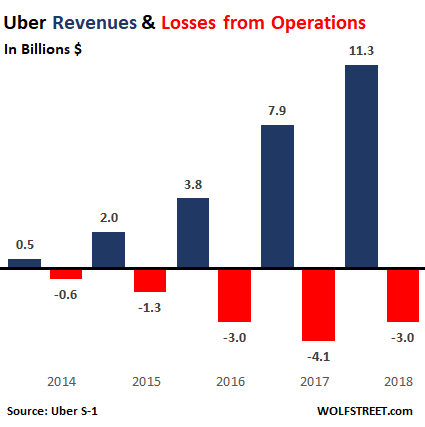
Read more …









